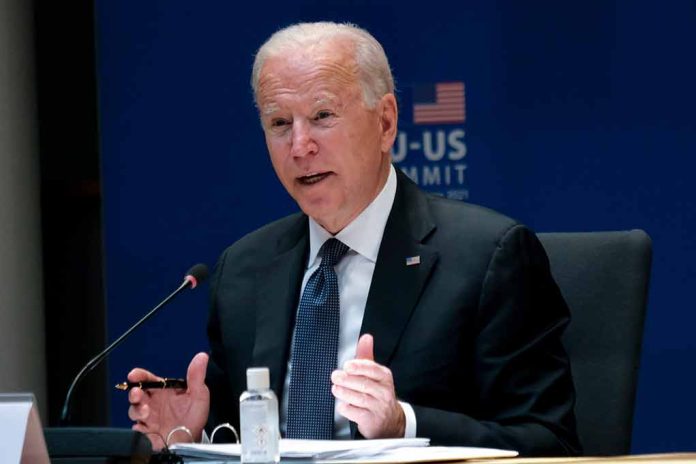
In his final hours as president, Joe Biden issued preemptive pardons for a number of key figures, including Dr. Anthony Fauci, retired General Mark Milley, Jan. 6 committee members and staffers, and several of his own family members.
Key Takeaways
- Biden pardoned Fauci, Milley, Jan. 6 committee staffers and members, and multiple family members before leaving office.
- He indicated the pardons aim to protect from potential politically motivated prosecutions by Trump’s administration.
- Biden stressed the pardons are not admissions of guilt or wrongdoing.
- Milley had been critical of Trump and was involved in the Jan. 6 investigation.
- Some have criticized the pardons as a potential admission of guilt.
Biden’s Preemptive Pardons
In a strategic move hours before the end of his presidency, Joe Biden issued preemptive pardons to Dr. Anthony Fauci, retired General Mark Milley, and various members and staff from the House committee investigating the January 6 Capitol attack. Biden indicated these pardons would serve as a preemptive measure to safeguard these individuals from any retaliatory actions speculated under the Trump administration due to previous threats and backlash.
Later in the day, just about 20 minutes before he was set to leave office, Biden also preemptively pardoned his siblings and their spouses. “My family has been subjected to unrelenting attacks and threats, motivated solely by a desire to hurt me—the worst kind of partisan politics,” Biden stated. “Unfortunately, I have no reason to believe these attacks will end. … Even when individuals have done nothing wrong and will ultimately be exonerated, the mere fact of being investigated or prosecuted can irreparably damage their reputations and finances.”
Milley, Fauci, and multiple members of the Jan. 6 committee responded graciously to Biden’s action, with Fauci arguing he has “been the subject of politically motivated threats of investigation and prosecution.”
Some Jan. 6 committee members, however, were initially less welcoming of the pardons. Former Republican Rep. Adam Kinzinger, for instance, argued that taking a pardon looks like an admission of guilt, even though he and the other members ultimately accepted them.
The political climate surrounding this decision remains tense. With critical comments against Trump from Milley—calling him a “wannabe dictator” and “fascist”—and Fauci facing scrutiny over his handling of the 2020 health emergency, these pardons could resonate as significant defensive maneuvers.
Reactions from Trump’s Allies
Many Republicans and Trump-supporting conservatives have expressed dissatisfaction with these developments. Riley Gaines shared a pointed criticism, questioning the true intentions behind the pardons and hinting at underlying guilt. Such sentiments deepen the political divide, setting the stage for a tumultuous transition.
“Ask yourself this: Why would Joe Biden pardon Fauci if he wasn’t a criminal who should be locked up for his lies, negligence, & greed that killed innocent Americans? Biden was already going out in shame and disgrace, but this is a new low,” Gaines said.
As speculation about retribution and investigations by a new Trump administration continues, public figures have expressed gratitude for the preventive measure taken by Biden. However, how long the political implications will linger remains to be seen.
Sources
- Trump slams Biden for pardoning Fauci, Milley and Jan. 6 committee staffers in final hours of presidency: ‘Disgraceful’
- Biden pardons Fauci, Milley and members of Jan. 6 panel
- Biden preemptively pardons family members and Trump foes including Fauci, Milley and Jan. 6 committee













